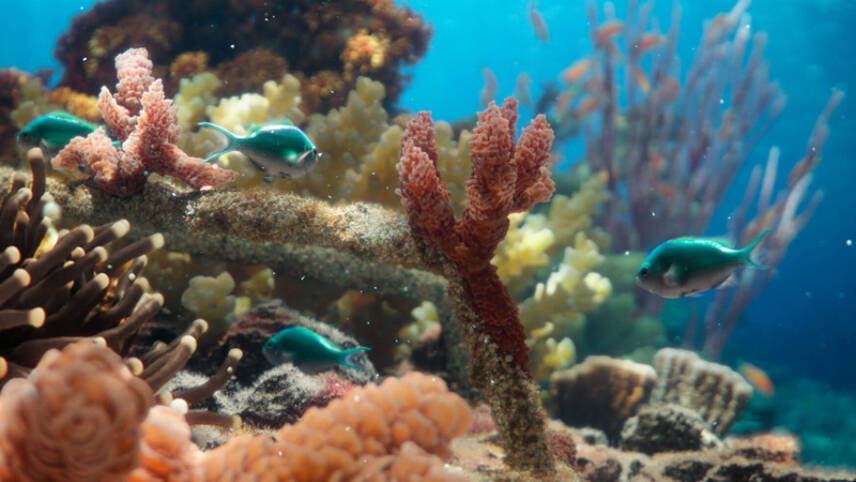Register for free and continue reading
Join our growing army of changemakers and get unlimited access to our premium content

Past restoration has seen coral cover jump from less than 2% to 70%. Image: Sheba
The FMCG giant has already funded what is thought to be the world’s largest coral reef restoration scheme, through its Mars Petcare brand Sheba. Delivered in partnership with The Nature Conservancy, the project has seen coral cover on ‘Hope Reef, off the coast of Sulawesi in Indonesia, increasing from less than 2% to 70% within two years
Learnings from the Hope Reef scheme will be applied for the event next year, called ‘The Big Build’. The event will be held in the same region as Hope reef. It will see the building of 5,000 square metres of reef using the same ‘reef stars’ technology used at Hope Reef. ‘Reef stars’ are star-shaped steel structures that can be linked together to create a ‘web’ to attach corals to. The aim is to attach 75,000 corals during The Big Build.
Representatives from Mars, the Nature Conservancy, government agencies, academia, local communities and other businesses using ocean resources will be in attendance at The Big Build. While the reef creation is underway, training will be provided so that participants are equipped to maintain the restored reef and to deliver other at-scale restoration schemes.
Mars claims that teams of four experienced divers can install up to 500 reef stars in just two days, making this restoration approach easier and quicker to deliver than some alternatives. With this in mind, Mars also believes this is a lower-cost approach.
Mars’ chief marine scientist Professor David Smith said the restoration technique “has true ability to scale”. Smith added: “By training more partners on the technology, while working closely with the scientific community to identify what’s needed to deliver resilient coral reef restoration at a global scale, we hope we can help change the course of our coral reefs and our collective future for the better.”
Mars itself, through Sheba, has committed to restoring at least 185 square kilometres of coral reefs by 2029. Restoration will need to take place at multiple sites – the target cannot be delivered with just one project or a series of projects in one region.
The Big Build will count towards this target, but Mars is emphasising that reef restoration at a far greater scale is needed – not just for the benefit of its own ability to source and to meet environmental targets, but for global benefits. Coral reefs cover just 0.2% of the seafloor, but they support at least a quarter of the world’s marine species. The UN estimates that 14% of the world’s coral was lost between 2009 and 2020, with challenges such as warmer and more acidic water, plus industrial fishing and unsustainable tourism, causing damage.
“Driving investment and building coalitions to restore coral reefs is mission-critical – we need a united approach to stem the tide of this threat to our oceans,” said Mars’ chairman Frank Mars. “By joining forces with the public, private, NGO and scientific communities for hands-on coral restoration and knowledge sharing, we believe we can accelerate the pace of restoration globally.”
The announcement has been made to coincide with the UN Ocean Conference, which is taking place in Lisbon, Portugal this week. Opening comments have already been made by UN Secretary-General Antonio Guterres, who apologised to youth “on behalf of his generation” for a lack of effort and progress to “recognise that conditions are deteriorating in the sea” amid issues such as the global temperature increase, plastic pollution and overfishing.


Please login or Register to leave a comment.